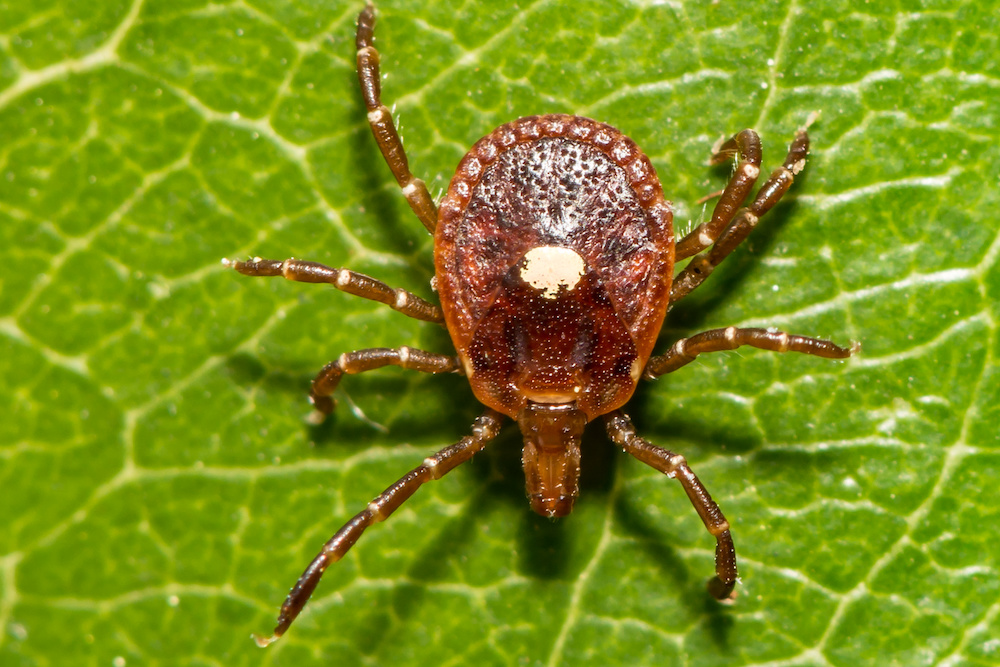Dental products could cause allergic reactions in patients with alpha-gal syndrome
Allergy linked to tick bites includes red meat, other animal products


Patients with an allergy to red meat called alpha-gal syndrome may experience reactions to dental products and medications that contain animal-derived ingredients.
An article published in the July issue of The Journal of the American Dental Association examined clinical studies, review articles, case reports and case series from 1990 through 2024, finding the most common alpha-gal reactions associated with oral health care were tied to the administration of animal-based hemostatic agents.
“If a patient has alpha-gal syndrome, their dentist needs to be aware of the history of this condition and the results of previous medical consultations and thoroughly review their diagnosis and past triggers and reactions,” said Ashraf Fouad, D.D.S., chair of the ADA Council on Scientific Affairs. “Consulting with a patient’s allergist or immunologist can help dentists gain greater insight into their patient’s condition. In addition, dentists should recognize that the emergency management of an alpha-gal reaction is similar to that of an acute allergic or anaphylactic reaction.”
Alpha-gal, a sugar molecule, is found in most mammals other than humans and in the saliva of some ticks, according to the Cleveland Clinic. When alpha-gal enters the bloodstream from a tick bite, it can increase a person’s sensitivity to red meat, triggering an immune system response. The body will react as if red meat is harmful, causing an allergic reaction.
Symptoms range from mild to severe and can be life threatening, according to the Cleveland Clinic. Skin reactions are common, but gastrointestinal issues are sometimes the only symptom. Other symptoms include cough, shortness of breath, wheezing, heart palpitations, low blood pressure and even anaphylaxis.
More than 110,000 suspected cases of alpha-gal syndrome were identified between 2010 and 2022 in the U.S., but the actual number is unknown, according to the Centers for Disease Control and Prevention. As many as 450,000 people in the U.S. may be affected.
In addition to red meat, people with alpha-gal syndrome may react to products made from mammals that could also contain alpha-gal, including gelatin, dairy products, and some medical products, medications and personal care items. Not all individuals with alpha-gal syndrome will react to every product containing alpha-gal, according to the CDC.
The JADA article identified multiple dental products that contain animal-derived ingredients such as gelatin, collagen, glycerin, glycerol, hydrogels and carrageenan. These products include artificial saliva substitutes, bone and gingival graft materials, chlorhexidine gluconate mouth rinses, collagen dermal fillers, fluoride supplements, gelatin capsules, lip balms, mouth rinses, prophylaxis pastes, suture materials, toothpastes and tooth-whitening gels.
Pharmaceutical companies are not required to disclose the presence of animal-derived ingredients on package inserts, according to the American Academy of Allergy, Asthma & Immunology.
Pill Clarity — a company that helps consumers and health care providers identify medications, supplements and other health products that are free from animal-derived ingredients or specific allergens — highlights animal-free dental products on its website. These include certain antibiotics, mouthwashes, whitening gels, dental flosses, desensitizing gels, local anesthetics, pain relievers, prophy pastes and sutures.
“By strictly avoiding dental products, graft materials and medications that contain animal-derived ingredients when treating patients with alpha-gal syndrome, dentists can help prevent adverse reactions,” Dr. Fouad said.



